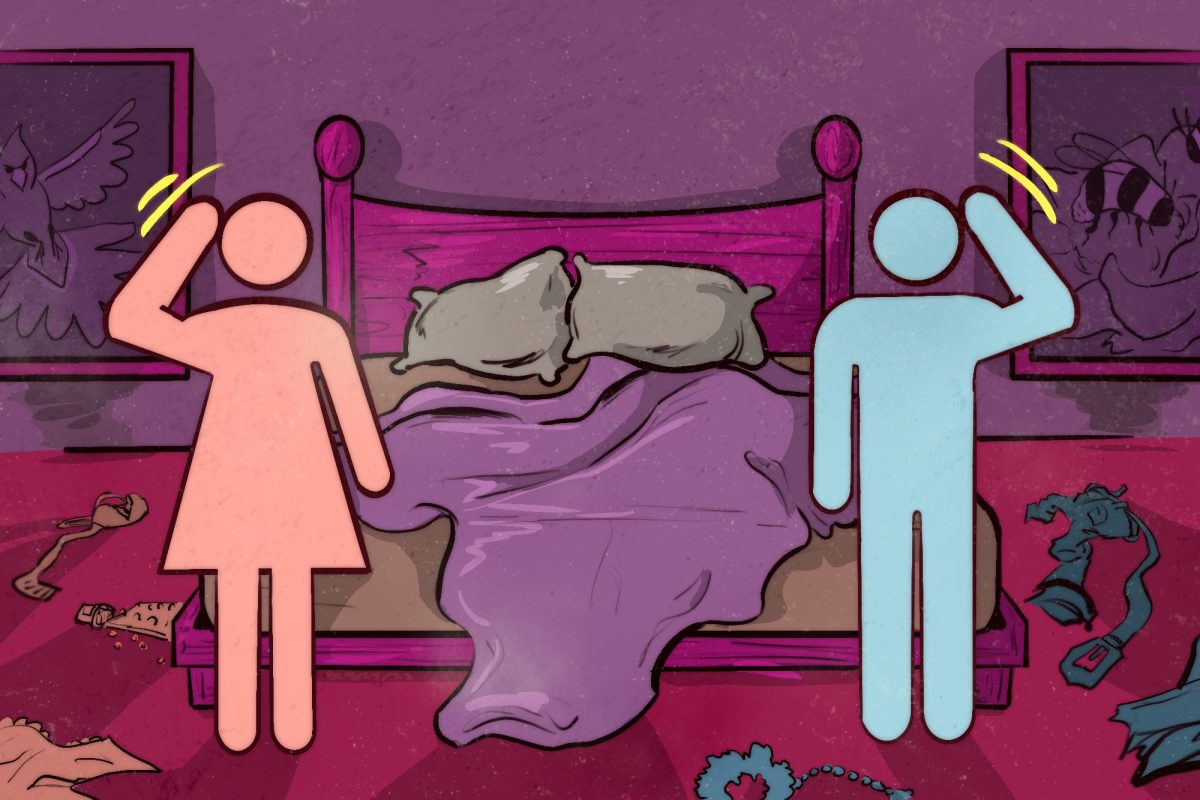Without mandatory sexual education in high schools, we’re essentially leaving kids to fend for themselves when it comes to understanding their bodies and relationships. It’s time we recognize that every student deserves the right knowledge to make smart choices about their health and future.
During my high school tenure, I took biology, math, chemistry and history but never any classes that involved sex education. My mom told me that when she was in high school, sex education was a class that everyone had to take.
Flash forward to my high school years, the class wasn’t even an option for me.
Sex ed is something that I would’ve wanted to take because it would have been a tremendous benefit for me. It could’ve helped me understand my body more, learn how to make informed decisions and have a higher confidence level when it came to myself.
Not only do kids not openly ask these sex related questions, most of the time they don’t even know what to ask. I know I didn’t. There are questions about basic human anatomy, sexual activity, protection, consent and personal hygiene that students often do not ask.
I watched TV shows such as “Euphoria” that normalized sex. The show followed high school teenagers experiencing things that I couldn’t even comprehend such as how sexually active these teens were and how much they knew about what they were doing.
“Euphoria” not only shows physical sex scenes but it also makes sexual references that make it hard to constantly keep up with. I felt embarrassed that I didn’t always get the sex joke or that I had to pull out my phone every 10 seconds to try and figure out what the characters meant or were alluding to.
Learning about sex comes with a certain maturity level. The class should be taught to the upperclassmen: juniors and seniors or between the age range from 16-18 years old.
According to the National Center for Health Statistics, teenagers between 16-18 years of age are prone to explore their sexuality. “An estimated 55% of male and female teens have had sexual intercourse by age 18 and approximately 80% of teens used some form of contraception at first sex, according to a new report by the CDC’s National Center for Health Statistics (NCHS).”
Sex education can be an official class taught by a professional that touches base on topics such as sexual activities, sexually transmitted diseases, planned parenthood, health and human development.
According to the Center for Disease Control and Prevention, there were 26 million new sexually transmitted diseases in 2018 in the United States. Around half of these infections are in people between the ages of 15 and 24.
Kids would benefit so much more from sitting in an actual class and listening to a professional about these sensitive topics in a safe space where questions are welcomed and judgment is not. Students shouldn’t rely on the internet to have the answers to all their questions around sex.
The sex conversation is an uncomfortable discussion that many parents avoid having with their children. This results in a higher risk of teen pregnancies, sexually transmitted diseases and a general lack of awareness.
According to a recent study conducted by Columbia University’s Sexual Health Initiative to Foster Transformation, students who receive sexual education in high school are at a lower risk of experiencing sexual assault in college. The project also alludes to the fact that sexual education during high school will have a protective effect for adolescents.
I wish I had received sex education, particularly during my junior and senior years of high school. Despite the potential awkwardness amongst my peers, I felt mature enough to engage in those conversations and continue learning about these topics.
“In addition to providing knowledge and skills to address sexual behavior, quality sexual health education can be tailored to include information on high-risk substance use* suicide prevention, and how to keep students from committing or being victims of violence — behaviors and experiences that place youth at risk for poor physical and mental health and poor academic outcomes,” the CDC stated.
The disparity of sex education becomes evident in communities of color. Studies show that certain kids have more knowledge to sex education than others simply based on the color of their skin and religious backgrounds.
According to the Washington Post, “Black and Hispanic males and Hispanic females received less sex ed than their White peers. More affluent teens were more likely to report they had been taught to say no to sex or wait until marriage. And children of color were less likely to receive sex ed before they had sex for the first time.”
If this class was a requirement for kids in school from all walks of life, then there wouldn’t be a cultural disadvantage between kids who know about sex and kids who don’t.
When we educate kids about sex in school, it benefits everyone in the future. Knowing about relationships and how to stay healthy leads to fewer surprises later on. It also means fewer people catch diseases from sex, fewer unplanned pregnancies and less sexual violence.



